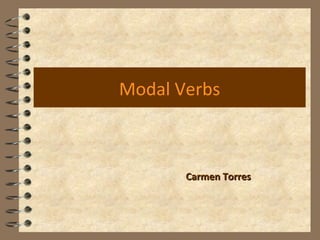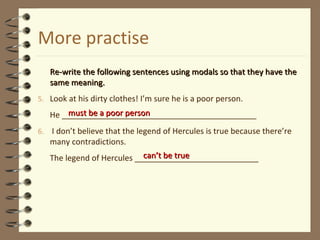This document discusses modal verbs in English. It defines modal verbs as verbs like can, could, may, might, must, shall, should, will, would, and ought to that are used to express ideas like possibility, permission, certainty, and obligation. The document explains that modal verbs do not conjugate or use auxiliary verbs. It categorizes modal verbs as single concept, double concept, or those used in past tense. Examples are provided to illustrate the meanings and uses of different modal verbs. Forms, categories, and practice questions are included to help understand modal verbs.





























